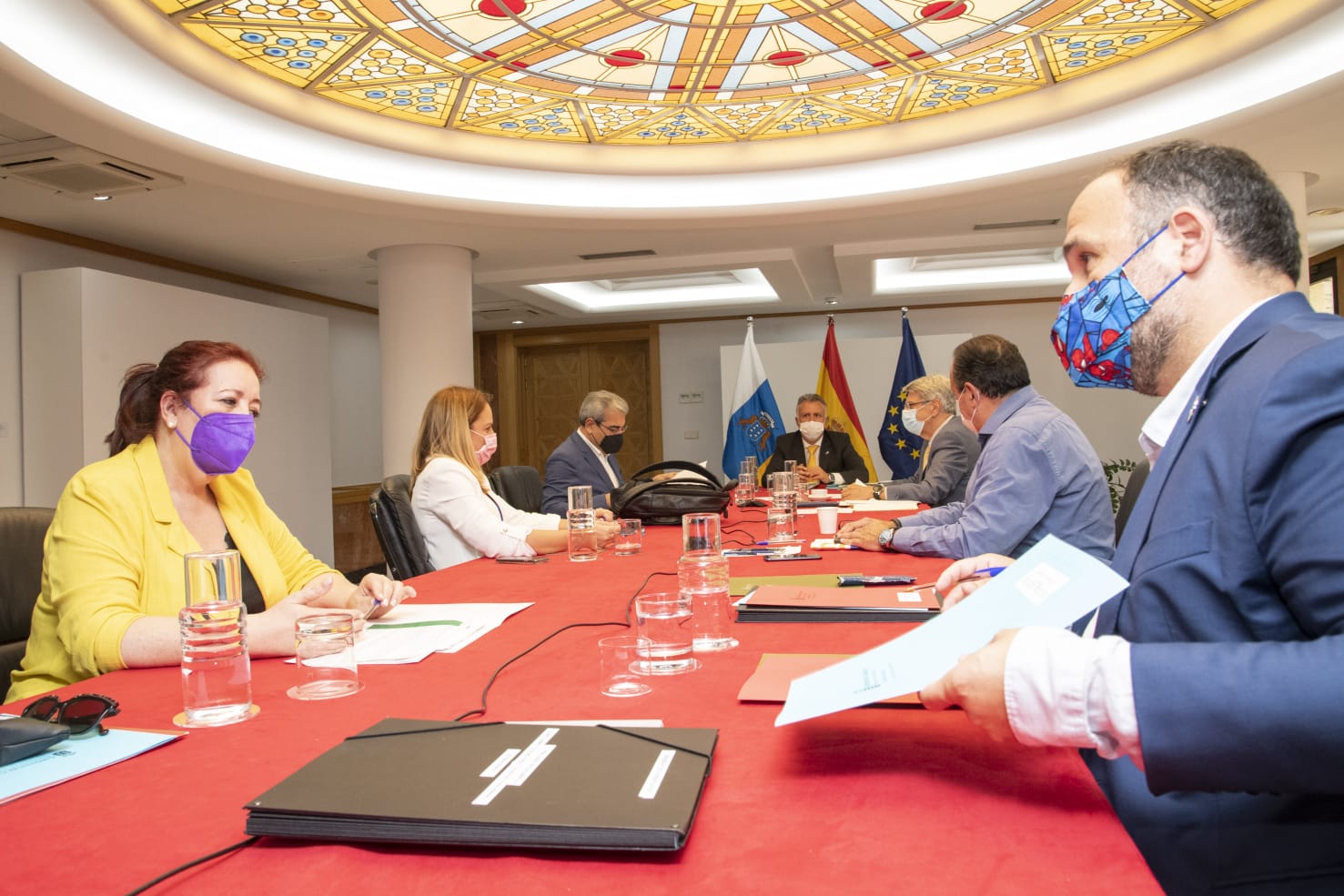The Canary Islands Governing Council met on Thursday, as they do every week, to discussed the development of the coronavirus pandemic in the Archipelago. The Canary Islands Government spokesman, Julio Pérez, explained that the alert levels for each of the islands remain unchanged, and he expressed positivity regarding the contagion data over the last week, adding that it is important to continue improving the situation. Gran Canaria, Tenerife, Lanzarote and La Graciosa are all on alert level 2 and the other islands, Fuerteventura, La Gomera, La Palma and El Hierro, are on level 1.
 Pérez also announced that the Canarian Government is studying the protocols that will allow tourists to visit the Islands with either a PCR test or with accreditation of having been vaccinated, or that coming from safe list areas with a low incidence of the coronavirus. “The evolution of the disease and vaccination have led us to reflect on the possibilities for modifying the rules, that we now have in force, for opening the Canary Islands to the outside, which is what we all wish, to facilitate the resumption of tourism flows”, said the spokesman.
Pérez also announced that the Canarian Government is studying the protocols that will allow tourists to visit the Islands with either a PCR test or with accreditation of having been vaccinated, or that coming from safe list areas with a low incidence of the coronavirus. “The evolution of the disease and vaccination have led us to reflect on the possibilities for modifying the rules, that we now have in force, for opening the Canary Islands to the outside, which is what we all wish, to facilitate the resumption of tourism flows”, said the spokesman.
No decisions have yet been formally announced, although it is widely expected “in the next few days” based on the decisions already adopted by the central government (which this Friday will announce an application mechanism for the whole of Spain), also taking into account what the Supreme Court establishes on restrictions to mobility.
Appeal to the Supreme Court
The Canary Islands Government, following the State of Emergency, wanted to retain the power to ban travel to or from any of the islands that see an increase in Covid cases, necessitating their moving to Alert Level 3 or 4. The regional high court did not support the move, on the basis that they say no difference between a tourist arriving to stay in holiday accommodation and an islander staying at a friends house, so the Government appealed last week to Spain’s Supreme Court.
They are awaiting, this week, the Supreme Court’s response to their appeal on being able, under the law, to impose perimeter closures for islands where the situation worsens, should they be required. Among the alternative measures that are being considered are include more screening and the requirement for tests and surveillance on islands at higher risk. Spain’s Congress of Deputies (parliament) this Thursday validated a decree law on measures against coronavirus, having ended the nationwide state of emergency earlier this month, delegating the last word on movement restrictions to the Supreme Court.
The Canary Islands Government say they will adjust their decisions to the doctrine decided by the Supreme Court, “whether they give us the reason or they do not,” said Pérez, while pointing out that the overall objective is for the vaccination and incidence figures to remain low enough to ensure that perimeter closures and travel bans are not required, adding that if any limitation to mobility was necessary, “perhaps other closure measures that do not affect the entire island will have to be taken.”










